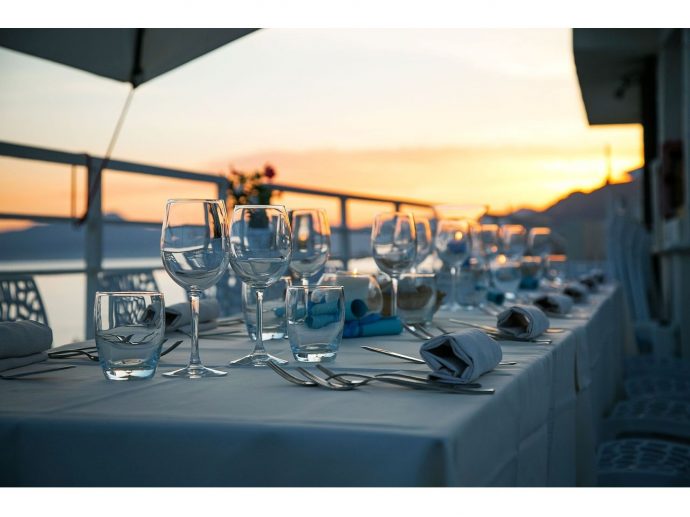Categories more
- Adventures (17)
- Arts / Collectables (15)
- Automotive (37)
- Aviation (11)
- Bath, Body, & Health (77)
- Children (6)
- Cigars / Spirits (32)
- Cuisine (16)
- Design/Architecture (22)
- Electronics (13)
- Entertainment (4)
- Event Planning (5)
- Fashion (46)
- Finance (9)
- Gifts / Misc (6)
- Home Decor (45)
- Jewelry (41)
- Pets (3)
- Philanthropy (1)
- Real Estate (16)
- Services (23)
- Sports / Golf (14)
- Vacation / Travel (60)
- Watches / Pens (15)
- Wines / Vines (24)
- Yachting / Boating (17)
How Can Fine-Dining Restaurants Maximise Sales in 2023?
Published
03/15/20232023 has been a challenging year for businesses so far. Even with the worst of the coronavirus pandemic long behind us, many industries are still feeling its effects through slow post-lockdown growth. This relative stagnation was exacerbated by successive economic crises in 2022, that saw overhead costs rise significantly – in tandem with falling consumer spending.
While recession conditions were narrowly avoided at the outset of 2023, the UK is by no means out of the woods. Some industries are bearing more of the brunt than others, with hospitality in particular experiencing significant disruption.
The industry may be more precarious than ever, but there are still opportunities for businesses to thrive; though spending may be down, fine dining concepts are nonetheless viable, and can absolutely succeed. Restaurant owners simply need to pay closer attention to maximising reservations and sales figures to weather the storm. How might you do this?
Menu Revamp
A sure-fire way to bring diners back into your restaurant concept is to refine and revise your menu. This is particularly the case for restaurants that rely on locals and ‘regulars’ for a core portion of their income; where customers get bored of a menu offering, they drop off and seek out alternatives. A medium-term solution could be to adopt a seasonal menu that changes according to ingredient availability – an elegant solution that also circumvents issues with ingredient supply.
Online Presence
It is extremely rare that a consumer-facing enterprise of any kind survives, let alone thrives, without a meaningful online presence. This means everything from a website that displays your menu and opening times to a range of active social media accounts.
As a restaurateur, it can be difficult navigating building an effective digital presence without expert assistance – and, indeed, third-party counsel might be a strong route to building a website and social media presence that garners results. But, at minimum, you should ensure your website accurately reflects the mood and core identity of your concept.
Influencer Marketing
Building a digital presence can work in other ways, too. Influencer marketing is an emergent form of marketing born from the prevalence of social media, in which brands partner with popular influencers with large followings through paid partnerships or sponsorship programmes. Simply inviting a local influencer to dine at your concept could increase bookings through their followers.
Delivery
The pandemic was an excellent showcase for the ingenuity of hospitality businesses, as location-based enterprises pivoted to serve a now-remote customer base. This remains a fertile market even today, and could be a useful secondary source of income. Partnering with gig-economy services like Deliveroo is one obvious route to this, but others might include cook-at-home meal packs, or pre-mixed bottles of signature cocktails organised as a form of subscription service. Creativity rewards well.















